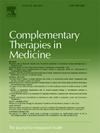手术患者的音乐干预:采用严格的纳入标准的系统评价。
IF 3.5
3区 医学
Q1 INTEGRATIVE & COMPLEMENTARY MEDICINE
引用次数: 0
摘要
背景:音乐干预在医疗保健已被证明是有效的。然而,研究往往质量低,缺乏适当的方法。我们的目的是评估有关音乐对疼痛、焦虑、主观压力和患者满意度影响的文献,采用狭窄的纳入标准,并评估其方法(例如样本量计算和随机化方法)。方法:检索自1980年至2024年7月5日的7个数据库。采用了缩小的排除标准。我们纳入了随机对照试验(RCT),评估了手术患者的录制音乐与标准护理。使用Cochrane Risk-of-Bias 2工具(RoB 2.0)评估偏倚。结果:纳入10项研究(1114例)。在六篇文章中,通过音乐干预,焦虑显著减少。四篇文章报道了疼痛的显著减轻。一项研究评估了压力,干预组的压力明显低于对照组。在三项研究中评估了患者满意度,均报告干预组满意度较高。方法学质量较低,只有三个研究报告了足够的样本量。总体偏倚风险被认为是高的。结论:手术前、手术中或手术后的音乐干预与疼痛、焦虑的显著减少和患者满意度的提高有关。尽管我们缩小了排除标准,但所有研究的偏倚风险都很高。样本量计算的再现性被认为很差。未来的系统评价应更严格地评估随机对照试验的对照组程序、随机化程序和样本量计算。未来的随机对照试验应充分实施这些方法。本文章由计算机程序翻译,如有差异,请以英文原文为准。
Music interventions in patients undergoing surgery: A systematic review using strict inclusion criteria
Background
Music interventions in healthcare have been proven effective. However, studies often are of low quality and lack adequate methodology. Our objective was to assess literature concerning the effect of music on pain, anxiety, subjective stress and patient satisfaction using narrowed inclusion criteria and assess their methodology (e.g. sample size calculation and randomization method).
Methods
Seven databases were searched from 1980 until the 5th of July, 2024. Narrowed exclusion criteria were used. We included randomized controlled trials (RCT) which assessed recorded music versus standard of care in surgical patients. Bias was assessed using the Cochrane Risk-of-Bias 2 tool (RoB 2.0).
Results
Ten studies were included (1114 patients). In six articles, anxiety was significantly reduced through a music intervention. Four articles reported a significant reduction of pain. Stress was assessed by one study, and was significantly lower in the intervention group compared to the control group. Patient satisfaction was assessed in three studies, all reporting higher satisfaction in the intervention group. Methodological quality was low, only three studies reported a sufficient sample size. Overall Risk of Bias was considered high.
Conclusion
Music interventions pre-, during or post-surgery were associated with a significant decrease in pain, anxiety and a higher patient satisfaction. Despite our narrowed exclusion criteria, overall risk of bias was considered high in all studies. Reproducibility of sample size calculations was considered poor. Future systematic reviews should more strictly assess control groups procedures, randomization procedures and sample size calculations of RCT’s. Future RCT’s should sufficiently implement these methods.
求助全文
通过发布文献求助,成功后即可免费获取论文全文。
去求助
来源期刊

Complementary therapies in medicine
医学-全科医学与补充医学
CiteScore
8.60
自引率
2.80%
发文量
101
审稿时长
112 days
期刊介绍:
Complementary Therapies in Medicine is an international, peer-reviewed journal that has considerable appeal to anyone who seeks objective and critical information on complementary therapies or who wishes to deepen their understanding of these approaches. It will be of particular interest to healthcare practitioners including family practitioners, complementary therapists, nurses, and physiotherapists; to academics including social scientists and CAM researchers; to healthcare managers; and to patients. Complementary Therapies in Medicine aims to publish valid, relevant and rigorous research and serious discussion articles with the main purpose of improving healthcare.
 求助内容:
求助内容: 应助结果提醒方式:
应助结果提醒方式:


